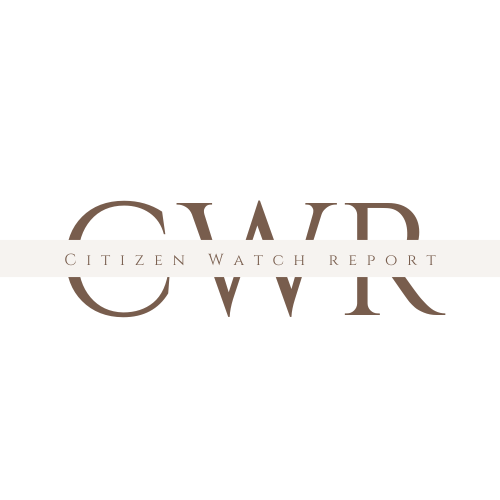Drug Regulators – The Revolving Door Keeps Revolving
The fact that Skerritt is more proud of “speeding” up drug approvals rather than improving the “safety” of approved drugs tells you everything you know about where his loyalties lay.
Making money for big pharma rather than the safety of Australians. Thanks to Maryanne Demasi for the article below.

“Former TGA boss appointed to the board of Medicines Australia, hoping to advance “mRNA technology framework” in Australia.

Eight months after leaving his position as head of Australia’s Therapeutic Goods Administration (TGA), John Skerritt has been appointed to the board of Medicines Australia, the peak body that represents the nation’s pharmaceutical industry.
In a recent interview with Medical Republic, Skerritt talked about his new position as an independent director on the board, saying that he was “looking forward to working closely with the industry.”
Reflecting on his time at the TGA, Skerritt said he was most proud of the way he was able to “totally rework” the regulatory framework by speeding up drug approvals.”
“Now we have priority, provisional, other pathways that can get those medicines to patients much earlier,” said Skerritt.

John Skerritt, former head of TGA
Since leaving the TGA, Skerritt also said he was “doing an awful lot of stuff on building the messenger RNA framework in Australia, both therapeutics and vaccines,” the very industry he was charged with regulating during the pandemic.
This has reignited concerns about the ‘revolving door’ of drug regulators, whereby agency officials end up working for (or advising) the same industries they once regulated.
The TGA was approached for comment. In a statement, the agency said it “has no restrictions applied to what employment employees can take when they leave the department.”
Medicines Australia did not respond to my request for Skerritt’s disclosure statement (which board members are usually required to submit), and it is not a matter of public record if Skerritt has a financial interest in mRNA technology.
Tony Nikolic, director at law firm Ashley, Francina, Leonard & Associates, said whether or not Skerritt is remunerated for his new role, he is still in a position to influence regulatory and policy decisions.
“Medicines Australia is still a lobby group and can influence the decisions made by the TGA and the advisory group ATAGI to favour certain research. In this case, Skerritt admits he’s interested in pushing mRNA technology through the pipeline,” said Nikolic.

Tony Nikolic, lawyer, Ashley, Francina, Leonard & Associates
He says certain organisations in Australia have argued for better rules to prevent the ‘revolving door’ and ensure that public officials act with integrity by enforcing a ‘cooling off’ period once they leave public office.
“There should be a higher emphasis on ensuring there’s a cooling-off period of no less than 5 years between appointments,” said Nikolic. “Skerritt’s recent statements only underscore the need for proper legislative and regulatory oversight to manage and prevent potential abuses and conflicts of interest.”
Peter Doshi, professor at the University of Maryland School of Pharmacy said the expedited pathways mentioned by Skerritt (that speed up drug approvals), come at a cost.
“Swift approvals are a fine goal, but not if it means that standards are being sacrificed—that defeats the whole purpose of having a regulator,” said Doshi. “The US has more than two decades of experience now speeding drugs to market, and the costs of rushing are substantial.”
“Officials often argue that they don’t cut corners, but we know that speeding up drug approvals means drugs can get onto the market without substantial evidence that they improve patient outcomes,” added Doshi.
“And research shows that such drugs are more likely to be subsequently labelled with additional safety warnings and more likely to be withdrawn due to safety issues.”

Peter Doshi, Associate Professor at the University of Maryland School of Pharmacy and senior editor at The BMJ
Doshi’s recent investigation for The BMJ highlighted the ongoing issue of the ‘revolving door’ of regulatory agencies.
He reported that two senior officials at the US Food and Drug Administration (FDA), who oversaw the approval of Moderna’s “Spikevax” covid-19 vaccine, took jobs at Moderna within months of leaving the agency.
“Public service isn’t just any job – you are being entrusted by the public to serve in the public interest. Revolving in and out between the FDA and industry violates that trust. It raises suspicions—suspicions that could very well be valid,” said Doshi.
“How can one ever be sure that the decisions they’re making while in the public sector were actually in the public interest? If an FDA official is eyeing a lucrative industry job, how tough is he going to be on his potential future employer? The public needs a regulator it can trust to always make regulatory decisions with the public interest in mind—not someone’s private interest,” he added.
Some have argued that the revolving door can be an asset that takes advantage of unique expertise and knowledge, but Doshi said this argument is flawed and blurs the line between expertise and commitment.
“Expertise is great. But it’s possible that an expert working as a public servant doesn’t have a commitment to the public interest and is also considering personal gain, or helping one’s network. That’s why some people propose a ‘cooling off’ period before allowing staff to accept roles with the industries they once regulated,” said Doshi.
TGA under the microscope
During Senate hearings, TGA staff members were criticised for downplaying safety concerns related to mRNA vaccines and for failing to monitor adverse events.
At a Senate hearing on 3 August 2023, South Australian Senator Alex Antic asked the TGA about its financially conflicted operations model.
Antic cited my BMJ investigation that reported the TGA had the highest proportion of its budget funded by the drug industry (96%) compared to five other international regulators.

“Does the TGA accept that it is horribly conflicted by virtue of that industry-funded model?” asked Senator Antic.
“No,” responded the TGA abruptly.

Alex Antic, Liberal Party Senator, South Australia
Under the Therapeutic Goods Act 1989, the TGA said there was no requirement to disclose the names of individuals involved in the covid-19 vaccine approval process, nor did any of its employees consent to having their names disclosed.
In a statement, the TGA said:
“Staff have received threats (including several dozen death threats) from individuals opposed to vaccination and, in particular, vaccination with the COVID-19 vaccines. In these circumstances, and having regard to the Australian Government’s safety obligations to its staff, it is inappropriate to release the names of those involved in the COVID-19 vaccine approval process.”
The agency said I could submit a freedom of information request, but that authorities would likely regard the information as being “exempt having regard to the safety obligations around Government staff and other public interest factors.”
——————
Resources:
https://twitter.com/SenatorRennick/status/1750334272035238189?s=20
https://blog.maryannedemasi.com/p/drug-regulators-the-revolving-door



















































